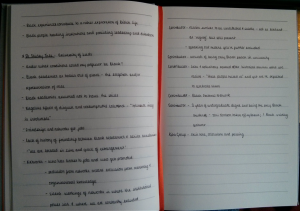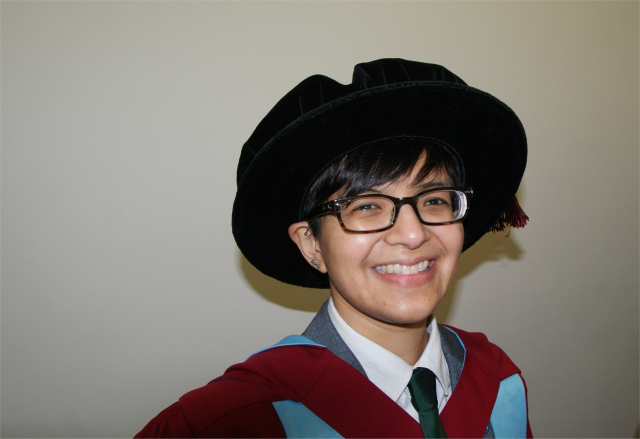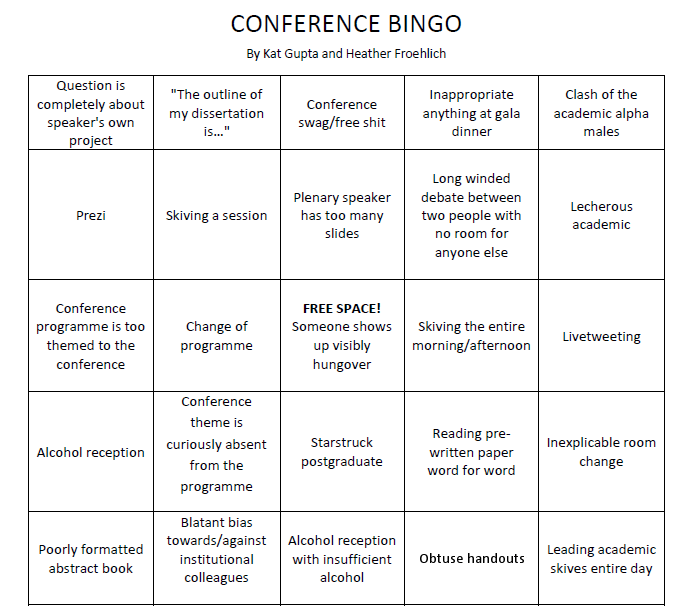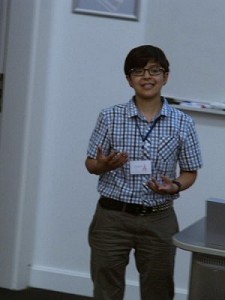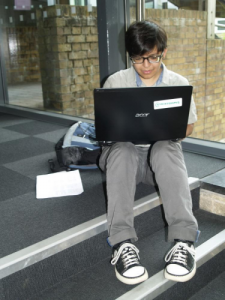I recently read a Time To Change blog post on starting university with a mental health problem and it made me wonder what advice I’d give to a student in that position.
I was an LGBT welfare officer at Nottingham and I considered it part of my role to know as much as possible about structures for student welfare and advice – everything from housing issues to sexual health – all of which stood me in good stead when I began teaching. If a student came to me with a problem, chances were that I’d know where to find information to help them – or at least know where to start looking.
Student mental health is one of the things I care a lot about and it both frustrates and terrifies me that information about student mental health can be so difficult to find on university websites. So with that in mind, here are three things that I’d especially like students to know.
Identify formal sources of support
You’ll probably be assigned a personal tutor who’ll be your first point of contact if you have any problems or issues. If you don’t click with them you can usually swap to someone with whom you’ll get on better. Some departments may have mentorship schemes where you can ask to be matched with a postgraduate researcher and have regular meetings with them.
In my experience, there is support for mental health issues in universities but these aren’t necessarily well signposted. For example, in my university, people who can help with mental health issues include department disability liaison officers (DLOs), the counselling service, the disability advisor based in the student union, the postgraduate disability advisor, the Disabled Students Network, a mental wealth group, HealthyU and a mental health advisor in Occupational Health. Because it’s a university, no one talks to each other and it seems to come as a genuine surprise to some of these that others exist.
I know, it sucks that you have to negotiate this and learn more about the arcane systems of a university than any of your peers, but on the other hand you will gain an unparalleled education in “organisational structures” and will be able to negotiate the shit out of any workplace or organisation you may end up dealing with in the future. Sorry, that’s not really much consolation.
I’d recommend talking to different people, groups and services and working out which of them are useful to you and which are not. If you don’t find a service useful or find that it actively upsets you, then don’t feel compelled to stay with it. Some people find peer support useful; others find counselling useful; others just want to check in with the DLO every so often. Whatever works for you.
Work out what you need to do to be formally recognised as disabled
Unfortunately, this is one of the things that differs between universities. You’ll probably have to contact your university’s disability office or student services to find out about this – in my experience, different departments range from incredibly clued up, helpful and supportive (like my current one) to them going “errr, you what now?” if you try asking (some others I could mention).
In the University of Nottingham, you generally start by disclosing a disability or Specific Learning Difficulty/dyslexia or a long-term medical condition. You’ll probably meet someone to discuss what reasonable adjustments you require to support your studies. Reasonable adjustments include things like getting work to you (for example, providing handouts and slides in advance of the lecture/seminar or in a different format), recording lectures, arrangements about group work, scheduling seminars, and arrangements for assessments and exams. You’ll then end up with a Disability Referral Form, which briefly outlines the nature of the condition and what sort of support you need – these then go to your department and, in turn, your tutors.
It’s a good idea to get one of these even if your mental health is well managed – the last thing you want in the middle of a crisis is someone turning around and saying “sorry, we can’t give you an extension because you’re not on record as having a disability”. Even if you don’t end up requesting different arrangements, they’re useful because they let your department know you exist – and if you ever do need additional support, it’s like a fasttrack ticket to help.
You won’t be alone in having a referral form either; both undergraduates and postgraduates have them, including postgraduates who teach. Your seminar tutor or lecturer could be among them.
Talk to us
Having taught students with mental health issues, nothing worries me like one of them seemingly disappearing off the face of the earth. I’d much rather they let me know they were alright but too anxious to attend seminars, or they’d switched medication and it was making them sleep through their alarms, or they were too depressed to leave their room. These things happen, and if the student lets the department and me know about it, we can do something about it – like move the student to an afternoon seminar group, meet them individually to help them catch up on work, reassure them about coming to a seminar or direct them to better sources of support.
It’s also better to do this sooner rather than later – let us know when there’s a problem developing rather than when you’ve got loads of work to catch up on and are feeling a horrible mixture of guilt and anxiety for missing so much work, making it impossible to approach your tutor. There are things we can do to help.
Ultimately, we want our students to get as much as possible out of university and develop intellectually, creatively and personally. Mental health problems mean that it might not be easy or straightforward, but it’s still possible to do very well – indeed excel – at degree level.
Thanks to Heather and Alex Brett for their much appreciated comments on this post

